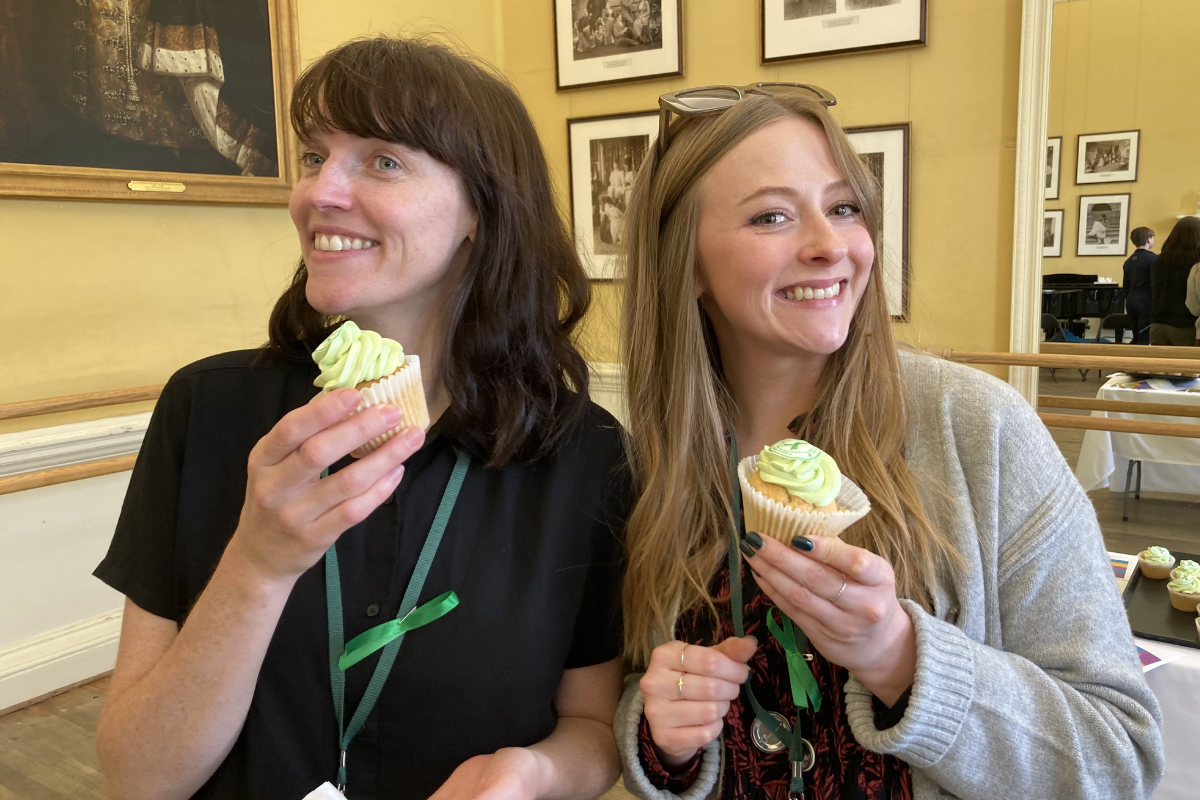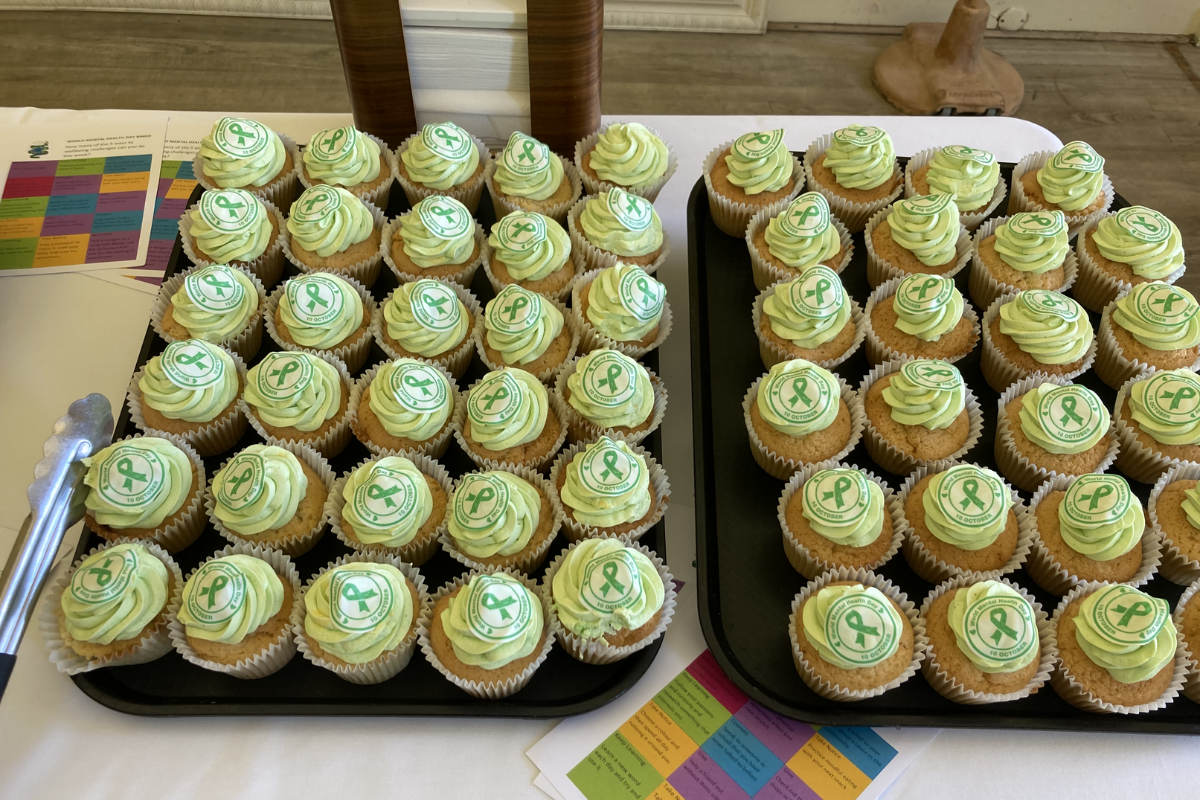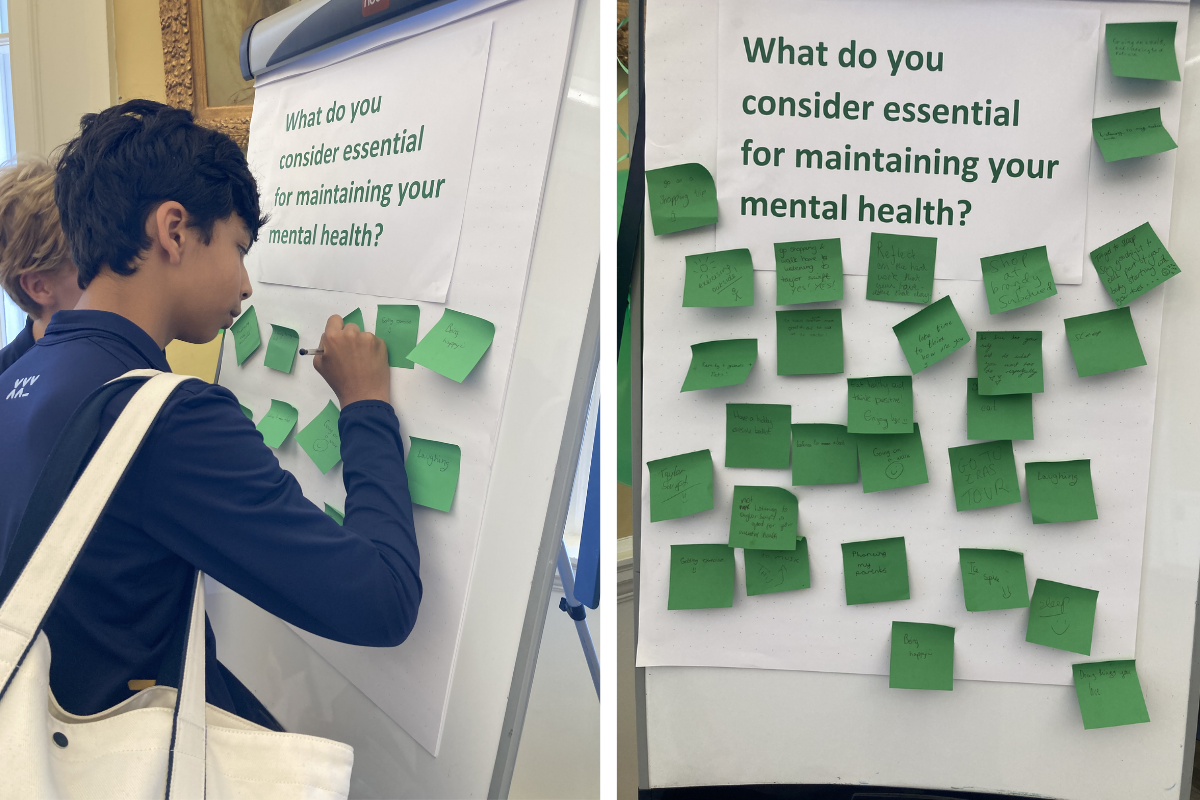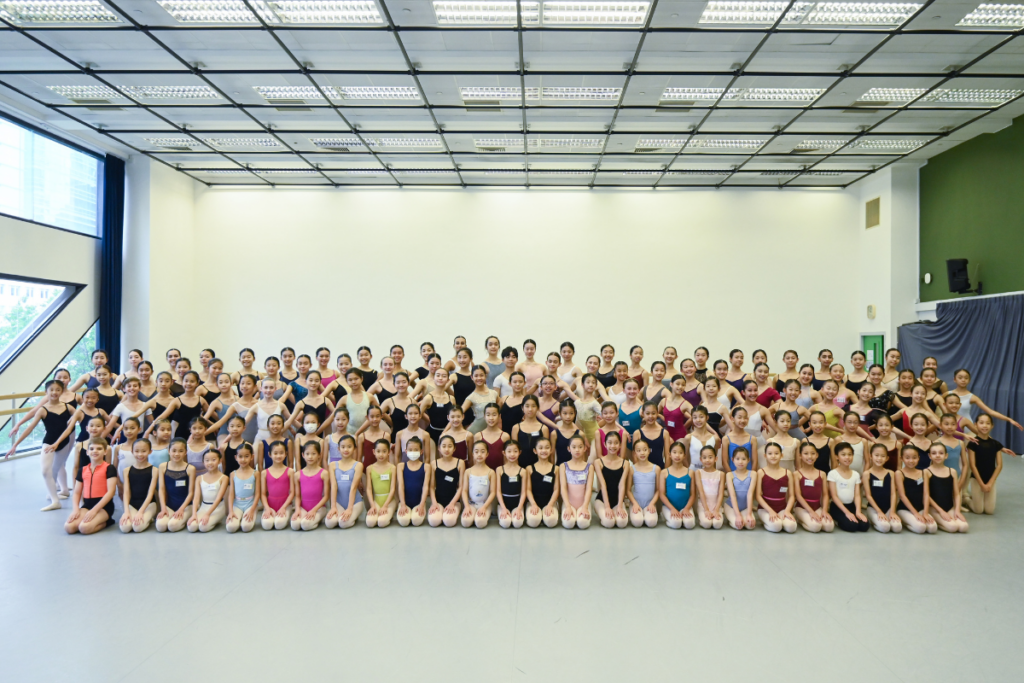World Mental Health Day 2023
The health and well-being of our students and staff is always our first priority, and we work consistently throughout the year to support their mental health. This World Mental Health Day, we organised activities aiming to build our School community and raise awareness of the subject of mental health. Our Designated Safeguarding Lead and School Psychologist, Christian Uitzinger, gave us some great insights and points to reflect on.
Before joining us in May this year, Christian worked in various other schools and practices, specialising in school psychology and psychotherapy. We asked him what inspired him to work in the mental health sector:
Growing up, I experienced adults who were very supportive and helpful in terms of mental health and also adults who weren’t. Towards the end of high school and going into university, I wanted to choose a career that reflected what was most impactful for me. The positive experiences I had, in terms of being supported by school counsellors, for example, were quite formative and led me to pursue a career in psychology. My focus has been around mental health in schools and making mental health accessible and understandable to children and adolescents.
We’re lucky to have Christian working with our students and delivering his expertise at the School. When we asked about his experience so far, he told us some of the common challenges that he encounters:
It’s been a very interesting process getting to know the students. It is fascinating to work with students who are extremely determined and passionate about what they do. There is a strong attachment that forms between the student and the ballet world and their art form. Sometimes, the attachment almost seems as strong as an attachment that one has to a primary caregiver. It can mean that much to them. This serves as a driving force, but also comes with other challenges, for example, when things don’t happen the way they might have hoped or when they off dance due to injury.
There is always support out there for anyone struggling with their mental health, and this is something we always want to reinforce to our students and staff:
If you have a mental health-related difficulty and seek support, it doesn’t mean there’s something wrong with you; if you’re struggling, it doesn’t mean that you’re not strong enough as a person. For students, I think sometimes they feel that getting mental health support indicates that they are not cut out for life at The Royal Ballet School, which isn’t true. That’s a complete misperception. Any student at the School could injure themselves, any student could encounter mental health difficulty. And there is always support available. Accessing that support is not going to negatively impact them or count against them in any way. That’s the message we want to strongly send to students.
I think that’s an important message for people in general as well. We need to normalise getting help and treating mental health problems as you would a physical one. I think the other point we also want to try and make is that counselling or therapy is normal, and everyone can benefit from it. Lots of people find it useful. One doesn’t have to be in a mental health crisis to benefit from that support. All students can access that support regardless of what it is that they are dealing with, even if it’s just to improve their day to day functioning as a person.
World Mental Health Day takes place every October, and Christian explained its significance:
Awareness is definitely a very important first step in terms of people having access to mental health care and in terms of people’s awareness of their own mental health. It all starts with awareness. It’s not something that people just know about. I think it’s something that people need help to know more about, and there’s a lot to be said in terms of education about mental health. Like any topic around health, the public needs to be educated and informed. World Mental Health Day is an opportunity for society, organisations, schools and individuals to slow down and put the spotlight on mental health. At the School, we hope that students and staff will be able to learn something new, such as an aspect of mental health that they might not have known about.
This year’s theme is ‘tea and talk,’ and The World Mental Health Foundation is encouraging people to get together to discuss well-being. Christian spoke about what we want to highlight here at the School:
Under this theme, we decided to serve cupcakes at lunchtime for students and staff to encourage conversation and social connection. We’re emphasising here at the School the importance of being aware of one’s own needs when it comes to mental health and accepting the fact that our needs are different.
For example, sleep is often spoken about as a very important factor to mental health, and it definitely is, however sleep is more important to some than it is to others. For some people, it’s not a big deal if they lose a couple of hours of sleep. For other people, losing an hour or two of sleep can be quite detrimental to their functioning. Therefore, for those individuals, sleep needs to be a priority for them. Some people can’t function without having their regular exercise, whereas with other people, it’s simply a nice to have. For some, it’s social connection; some people really need time with their friends, but other people need alone time. Everybody has different needs, and that’s okay. That’s normal.
What we want to ask this year is how well do you know yourself in terms of what your needs are? What are your mental health essentials? And if you’re not too sure what they are, how can you go about identifying what your needs are?
Getting in touch with your needs can be difficult; however, interoceptive awareness can make it easier. We learned from Christian what interoception means and how we can use it:
Interoception is the sense of what you feel inside your body. For example, the feeling of hunger, the feeling of being tired, the feeling of being unwell. It’s your internal sense and an important part of understanding and working out what your own needs are. There’s questioning into whether this is a physical or mental need, and there’s a lot of overlap there. But I think we tend to find that when we’re very stressed and busy, we tend to ignore what our body might tell us. And so, our interoceptive sense becomes somewhat diminished.
We’re encouraging students and staff to spend time increasing their interoceptive awareness. There will be an exercise and assembly that our school counsellor, Lucy Bailie, will do around paying attention to what your body is saying to you. Interoception refers not just to a physical sense of hunger or pain or tiredness or discomfort, it also has a lot to do with your emotions. Emotions are actually felt physically; the more in touch you can be with your body, the better a level of awareness around your emotions you’ll have as well.
As a psychologist, Christian often comes across misconceptions regarding mental health. We spoke about what some of these are:
Even though it is 2023, I think there is still a misunderstanding and a stigma around mental health and mental health challenges. People still sometimes feel ashamed about having mental health challenges and feel that it’s a sign of being weak or that there’s something wrong with them. There’s still that perception out there, which I think does two things. It makes people reluctant to access help and support when they need it, and it pathologises what’s very normal. Mental health challenges and emotional difficulties are a normal part of the human experience. It doesn’t mean that there’s something wrong with you, and if you’re going through a hard time emotionally, it’s incredibly normal.
When people think about mental health, they think it’s all about trying to be as happy as you possibly can be. And it’s not really about that. Prioritising your physical health doesn’t necessarily mean that you’re always going to be healthy, and the same applies to mental health.









